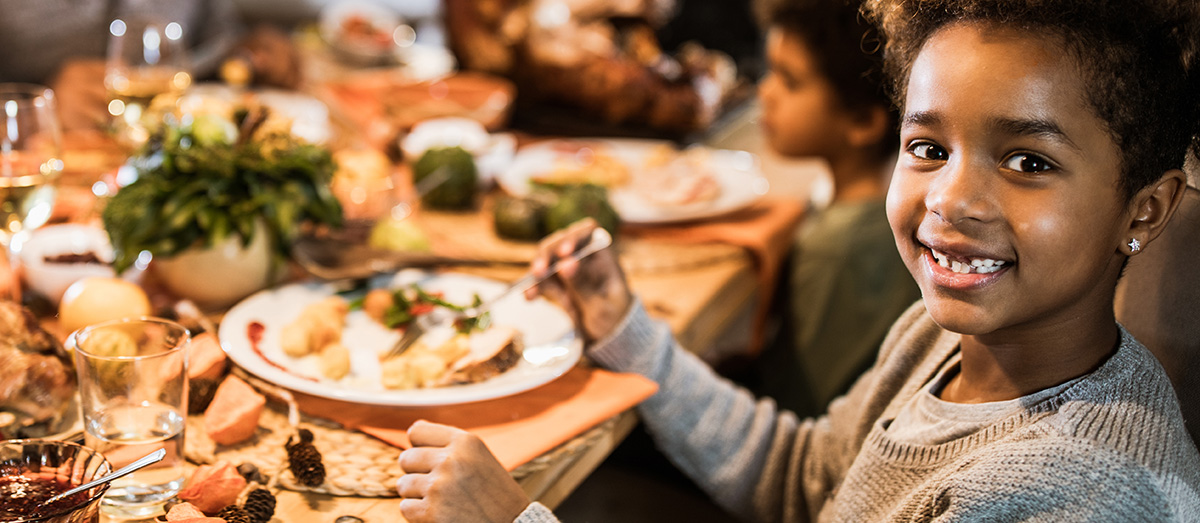For the families of kids with inflammatory bowel disease (IBD), the holidays can be a tough time of year. So many of our holiday traditions are centered on food and depending on what type of eating plan they’re on, they may not be able to consume their favorites.
Doing so could potentially cause more symptoms, flares, or poor healing of the bowel. That said, we want our families to enjoy this time as much as possible! We recommend taking a balanced approach, which we’ve outlined below:
Tips for Handling the Holidays with IBD
1. Stick to your eating plan as closely as possible
We recommend that your child sticks to his eating plan as closely as possible, as it will help him feel his best during this busy season. IBD is a little different for everyone, so what works for your child might not work for someone else’s. Some kids are told to eat a “regular healthy diet,” while others may need to eliminate triggers, and some may need to be on exclusive enteral nutrition (all liquid diet), or another specialized diet.
2. When indulging in a treat, pick one
If your child is going to indulge in a treat, we recommend picking one. For example, pick either a drink or a dessert, but not both. Before doing so, speak with your medical provider to see if this fits with your nutrition plan.
3. Watch the portion sizes of treats
We recommend keeping the portion size small when indulging in that treat. This may help any potential side effects be less severe.
4. The rest of the time, steer clear of the common triggers
Around the time that your child eats a treat, we recommend steering clear of the foods that are problematic for most people with IBD. This is key at all times of year, but is particularly important if you know that your child is going to be indulging in a favorite treat. Examples include high fat meats, added sugars, and processed foods.
5. Look for substitutes
It is possible to find acceptable substitutes for many holiday favorites! For instance, some patients with IBD are on a specific carbohydrate diet (SCD) and have to eliminate all grains and some carbs. Try substituting mashed cauliflower for mashed potatoes. With the right mixings, it can taste quite close to the real thing! Work with your dietitian to discuss individualized options.
6. Bring a dish to share
If you will be eating a meal at someone else’s home, I recommend offering to bring a dish that you know your child can eat. That way, she won’t go hungry and you might even help a family member see that these types of food substitutes can still taste good!
7. Encourage non-food activities
I encourage our families to take the focus off food by suggesting non-food activities. For example, if your family tradition is baking cookies together, suggest that everyone go look at a holiday light display instead.
8. Explain your child’s condition
It may be helpful to have a conversation with the host ahead of time about your child’s condition. Sometimes people’s feelings get hurt when they see that someone isn’t eating their food. We get it – cooking a big meal for a big crowd is a lot of work! However, if they are educated ahead of time and understand that your child could suffer significant and uncomfortable side effects, they may be more empathetic.
Our IBD Center focuses on the physical, emotional and social aspects of Inflammatory Bowel Disease to help kids experience the best quality of life possible. To learn more, please call 513-636-4415, email ibd@cchmc.org or fill out an online form.





